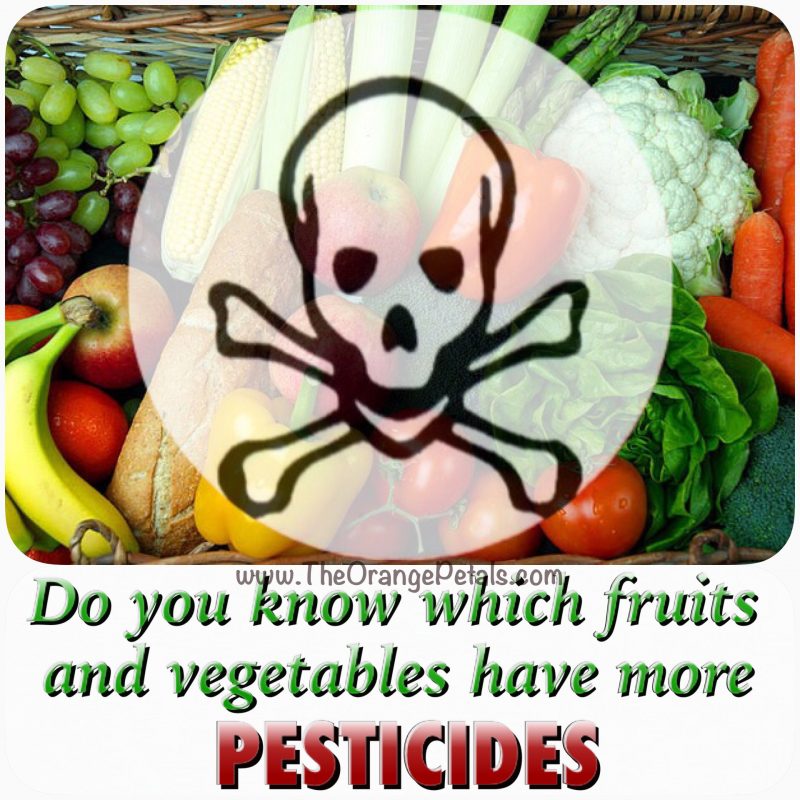If you’re eating non-organic, you may be ingesting 67 pesticides, according to a new report from the Environmental Working Group. Fresh fruits and vegetables are always a healthier choice than processed foods. Besides, non-organic processed foods are sure to contain a slough of chemicals too!

The group, a nonprofit focused on public health, scoured nearly 100,000 produce pesticide reports from the U.S. Department of Agriculture and the U.S. Food and Drug Administration to determine what fruits and vegetables we eat have the highest, and lowest, amounts of chemical residue.
Pesticides have been linked to developmental problems in children, and may act as carcinogens or throw off the endocrine system, according to the U.S. Environmental Protection Agency.
Pesticide and herbicide use contaminates groundwater, ruins soil structures and promotes erosion, and may be a contributor to “colony collapse disorder,” the sudden and mysterious die-off of pollinating honeybees that threatens the American food supply. Buying or growing organic food is good for the health of the planet.
18 Fruits And Vegetables With The Most Pesticides
-Apples
-Tomatoes
-Celery
-Sweet bell peppers
-Peaches
-Kale and Other Leafy Greens
-Strawberries
-Cucumbers
-Nectarines
-Grapes
-Peaches and Nectarines
-Spinach
-Lettuce
-Pears
-Beans
-Potatoes
-Snap peas
-Mushrooms
Can pesticides be washed away?
Not necessarily. The pesticide tests mentioned above were conducted after the food had been power-washed by the USDA. Also, although some pesticides are found on the surface of foods, other pesticides may be taken up through the roots and into the plant and cannot be removed.
All fresh produce, whether it’s grown with or without pesticides, should be washed with water to remove dirt and potentially harmful bacteria. And health experts agree that when it comes to the Dirty Dozen list, choose organic if it’s available.
Source: http://www.allabouthealthyfood.com/fruits/warning-18-fruits-and-vegetables-with-the-most-pesticides
Leave a Reply